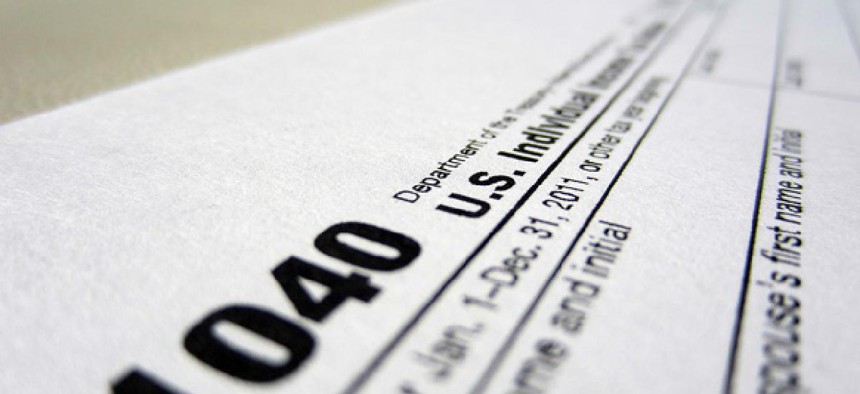
Flickr user 401K
Obama would restore recent cuts in IRS budget
Agency and union argue new hires bring in more revenue.
President Obama’s fiscal 2013 request for the Internal Revenue Service is aimed at restoring funding that Republicans trimmed in 2011 as part of an ongoing political battle over the tax-collecting agency.
The administration as part of the Treasury Department budget asked for $12.8 billion, which would be an increase of $944.5 million (8 percent) over the enacted level for 2012, and a $639.3 million increase (5.3 percent) over the level enacted in 2011, according to an IRS summary.
GOP lawmakers have trimmed the IRS in part because of its role in implementing the 2010 Affordable Care Act, which many Republicans want to repeal.
The IRS has reported it collected $2.4 trillion in taxes in fiscal 2011, representing 92 percent of federal government receipts. It processed more than 144.7 million individual returns during the 2011 filing season and issued almost 110 million refunds totaling $345 billion. The IRS argues that it achieves a 4.3-1 return on the government’s investment in new hires, once they’re fully trained.
If Congress restores its prior funding levels, the agency says, it would use the money to reduce the tax gap through more aggressive enforcement efforts to identify fraud and taxable income parked offshore. It also would use it to implement the health care law and other legislative changes to the tax code, as well as provide better explanatory materials to taxpayers.
The National Treasury Employees Union applauded the proposed budget hike, saying it would permit the hiring of 4,000 new employees. “The additional funding is critical to repair the damage of the harmful cuts during the past two years, which are resulting in a very difficult filing season, hampering the ability of IRS employees to respond to taxpayer inquiries,” NTEU President Colleen Kelley said in a statement.
“As the IRS workload continues to rise and the tax code becomes increasingly complex, staffing levels at the agency are 20 percent below what they were 15 years ago,” she said. “IRS employees know taxpayers need assistance and want to help, but long hold times result in dropped calls when taxpayers give up in frustration.”







